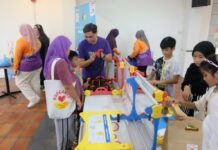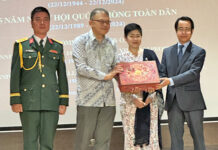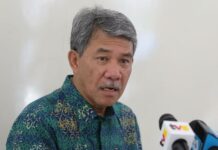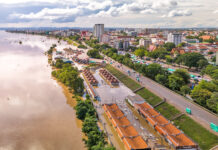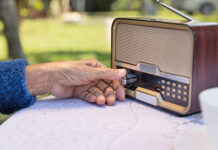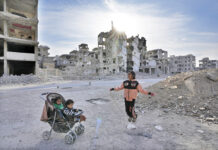ISTANBUL (AP) – Survivors of the earthquake that jolted Turkiye and Syria 15 days ago, killing tens of thousands of people and leaving hundreds of thousands of others homeless, dealt with more trauma and loss on Tuesday after another deadly quake and aftershocks rocked the region.
The 6.4 magnitude earthquake that struck on Monday evening had its epicentre in the Defne district of Turkiye’s Hatay province, which was of the area’s worst affected by the magnitude 7.8 quake on February 6 that killed nearly 46,000 people in the two countries.
Turkiye’s disaster management authority, AFAD, said the new quake killed six people and injured 294 others, including 18 who were in critical condition. In Syria, a woman and a girl died as a result of panic during the earthquake in the provinces of Hama and Tartus, pro-government media said.
Monday’s quake was felt in Jordan, Cyprus, Israel, Lebanon and Egypt. A magnitude 5.8 quake followed, along with dozens of aftershocks.
The White Helmets, northwest Syria’s civil defence organisation, said about 190 people suffered injuries in rebel-held areas and that several flimsy buildings collapsed but there were no reports of anyone trapped under the debris.
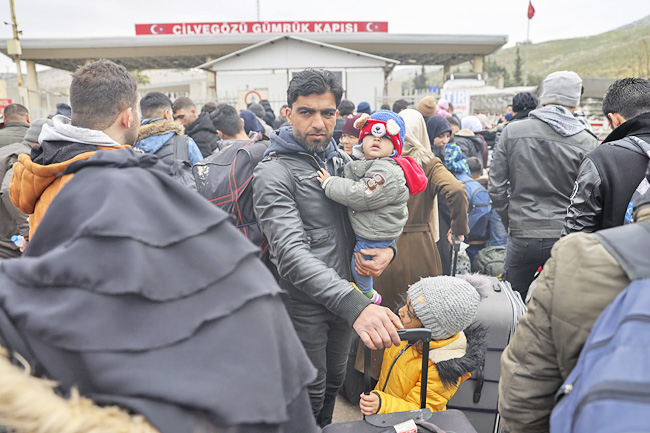
In Turkiye, teacher Zuher Capar, 42, said he was mourning the loss of relatives in the original earthquake and having a meal with his aunt and uncle near the Hatay town of Samandag when they felt Monday’s temblor. “It shook a little, then it grew strong,” he said. “The electricity went and there were screams everywhere. There were small children in the house.
They were screaming, my aunt was crying.”
On February 6, Capar rushed to try to help his cousin, the cousin’s wife and the couple’s small children out of the rubble of their collapsed home, but they did not survive.
“We had barely overcome the sadness (from the first earthquake),” he said.
While his large family’s home withstood the quake earlier in the month, it was damaged on Monday. Capar said they are too frightened to sleep there and plan to stay in a large tent and cars.
“We are trying to stay strong but it is a terrifying process. The cities we knew, the memories we had, have been destroyed,” he said. “When we go in the streets, there is only rubble and heavy machinery. It’s like a horror movie scene.”
Turkish officials warned residents not to go into the remains of their homes, but people have done so to retrieve what they can.
Three of the people killed on Monday were inside a damaged four-storey building when the new quake hit.
Aftershocks and the instability of the structure complicated the rescue effort, and it took several hours for search crews to find the bodies, Turkish news agency DHA said.
Dr Tahsin Cinar, who is using vacation time to help provide medical care in Hatay as a representative of the Turkish Medical Association, said earthquake survivors need serious help with their mental health.
“They feel so alone, so deserted and very anxious. Even a small tremour leads to a big anxious reaction,” he said.
Cinar and other volunteers initially provided emergency care for people with physical injuries.
Now, they are seeing more signs of psychological trauma, depression and the stress that comes with a lack of safe housing, winter weather and a pause in education.
“There is nearly nothing to create social well-being,” he said.
The UN’s World Food Programme said Monday’s quake frightened employees who were distributing food to hundreds of thousands of people in northwest Syria and Turkiye.
The employees are sleeping in their cars in freezing temperatures while still trying to do their jobs, the programme said.
Kamal Abuhassan’s small house in Jinderis, Syria, was damaged in the the first earthquake, but after a few days, he and his family returned. They ran out when Monday’s quake hit; the dwelling is now partially collapsed into piles of rubble.
“Our house is ruined, but at least our kids are OK,” Abuhassan said.
He has set up a tent just outside the house, too afraid to go back inside. “We just don’t know when the next earthquake is going to happen. Where else are we supposed to go other than tents?” he said.
Some 13.5 million people live in Turkiye’s 11 quake-hit provinces, where authorities said more than 139,000 buildings were either destroyed or so severely damaged that they need to be torn down.
Turkish President Recep Tayyip Erdogan said 865,000 people were living in tents as of Tuesday. Some 270 tent cities have been set up in the affected provinces, and winter weather added to the suffering of displaced citizens.

